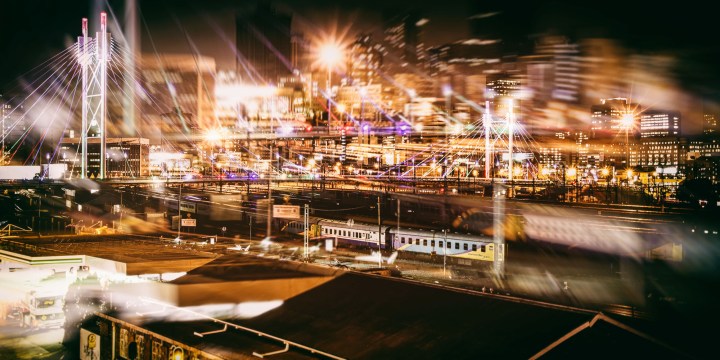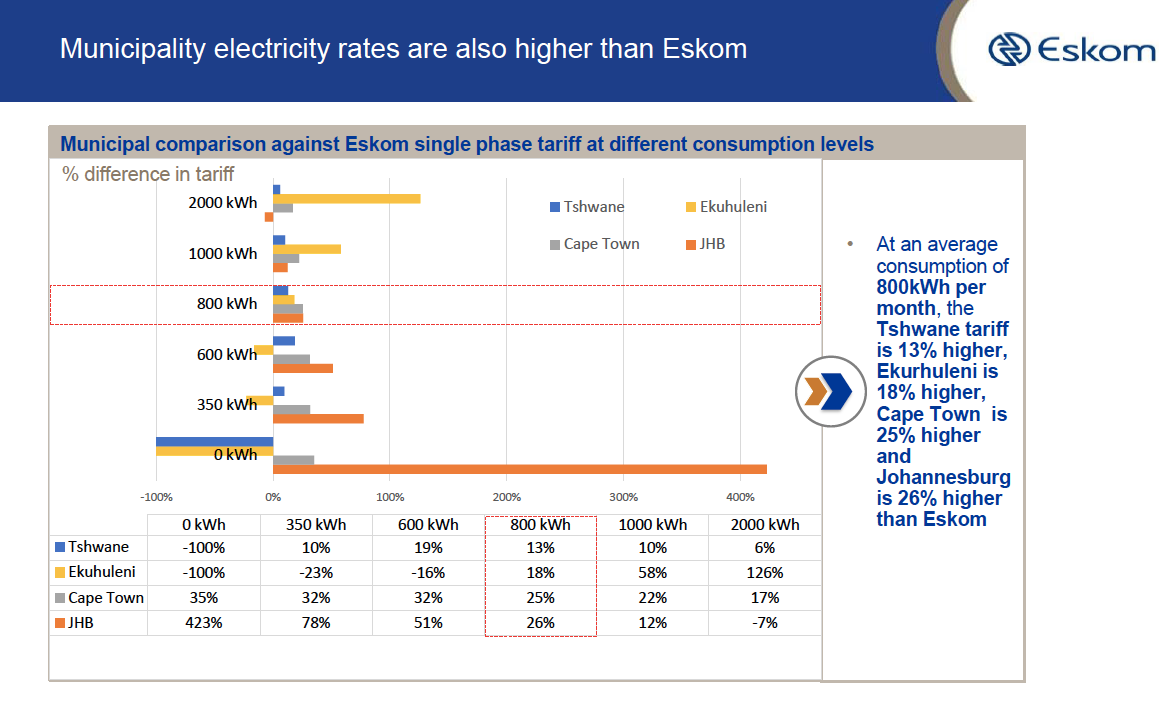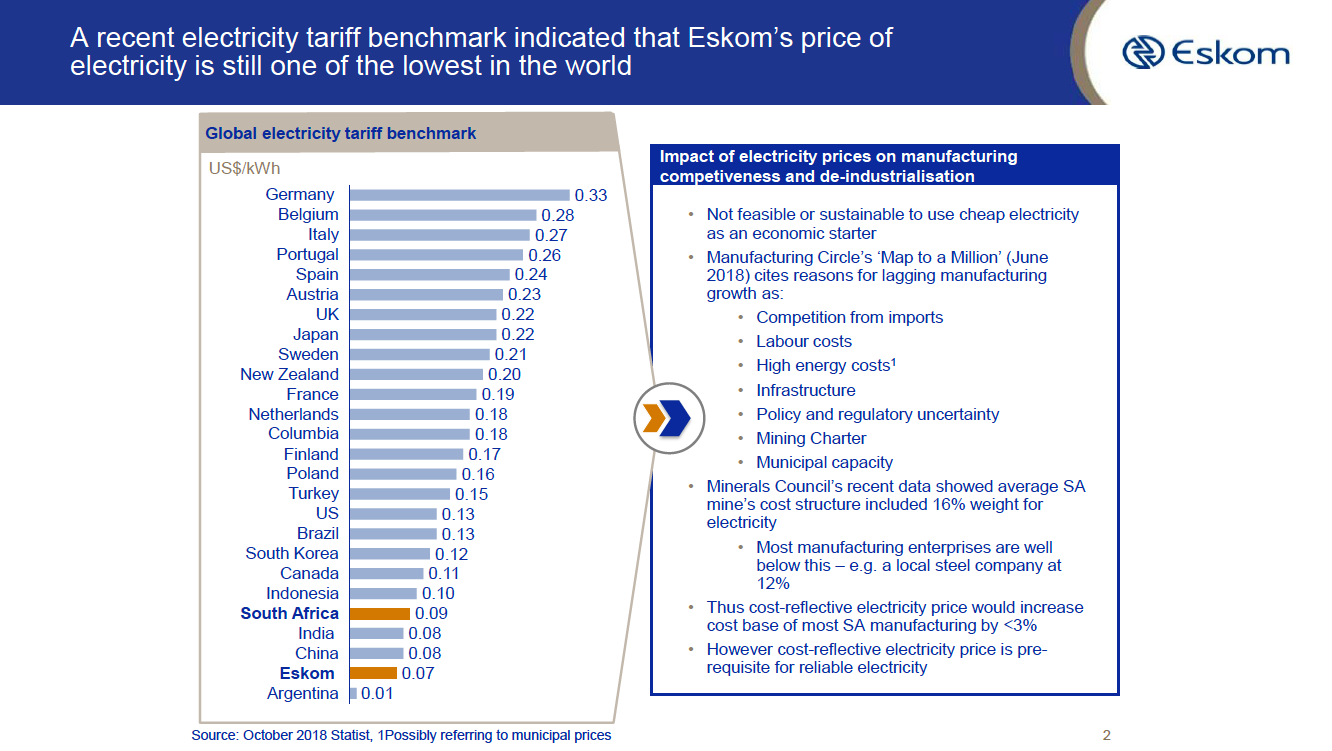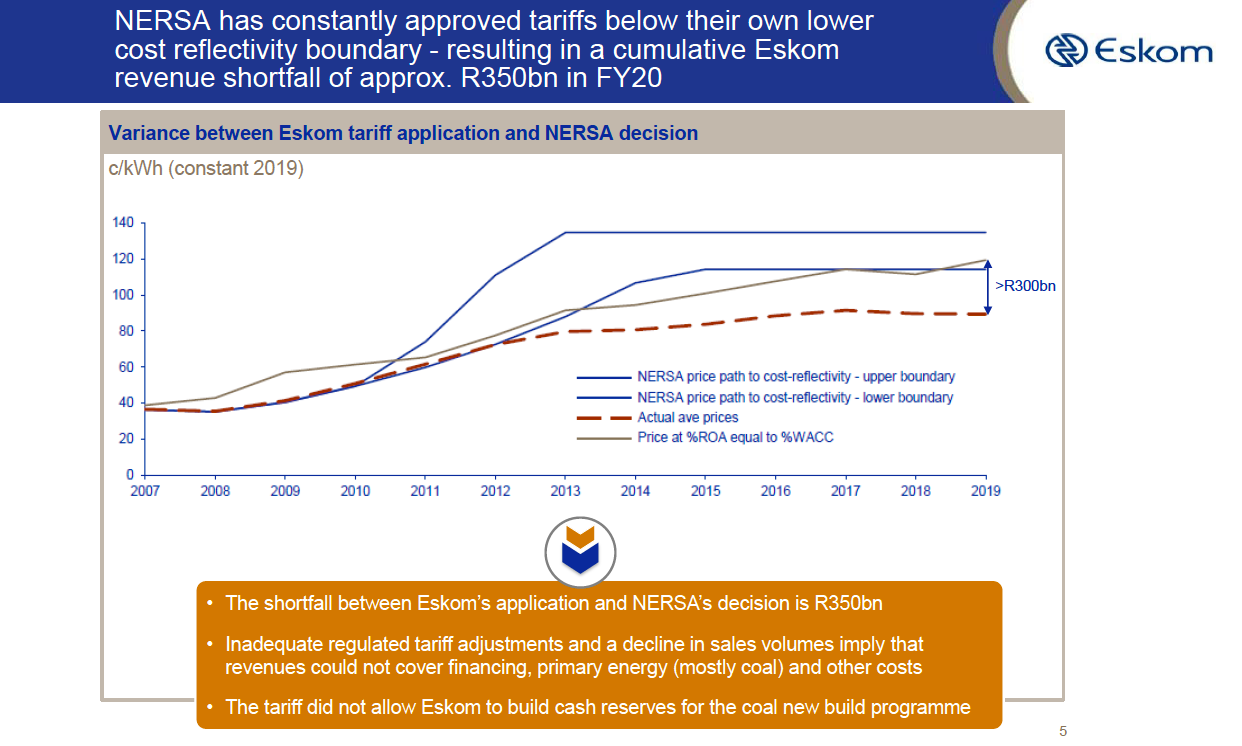Power Trip (Part One)
Joburg electricity costs spiral as city suffers Covid-19 revenue loss

Johannesburg city bosses have pushed electricity tariffs so high that they are now the most expensive in the country. This was revealed in research conducted by Eskom. Now consumers are feeling the pinch.
Throughout the lockdown, and after new electricity tariffs were implemented by the Johannesburg city council in July, many people took to social media to post images of their metro bills which revealed astronomical tariffs, often adding up to more than residents’ mortgage costs.

While City Power says it implemented the allowable 6.3% tariff increase granted by the electricity regulator, Nersa, the fine print is different.
Johannesburg levies a number of additional charges which amount to stealth taxes on city residents. Johannesburg is not alone in using electricity to boost municipal finances which are often depleted by sky-high staff costs.
An Eskom report on tariffs has revealed that “at an average consumption of 800kWh per month, the Tshwane tariff is 13% higher, Ekurhuleni is 18% higher, Cape Town is 25% higher and Johannesburg is 26% higher than Eskom”.
In a reader-led special report by Daily Maverick’s Insider community, high electricity costs for Johannesburg and Cape Town were most frequently reported by the audience.
Johannesburg is South Africa’s biggest contributor to GDP and electricity costs levied on businesses are even higher, which reveals the city’s power charges can act as a drag on the economic growth the country needs to reignite an economy battered by Covid-19.
Eskom is on a drive to demonstrate that its electricity costs are still globally competitive, coming in second-lowest in a basket of countries measured for its benchmarking report.

The utility has won several court cases against Nersa’s tariff decisions and it wants to increase tariffs for 2021, which means your municipal bill can go up even higher.

The slide above shows that Eskom says there is a revenue shortfall of R300-billion attributed to incorrect allowable tariffs. With Johannesburg still largely dependent on Eskom for electricity (the city buys a tiny amount of electricity from the private Kelvin power station), it will pass on Eskom increases to consumers and businesses.
Joburg city’s revenue took a dive during the lockdown as collections from rates and utilities fell well below budget. By April the city had collected R2.83-billion, well short of its target of R3.54-billion, causing a deficit of R708-million in April, which it pared down to R458-million by May. It has to make up the deficit and it is likely that electricity costs are being maximised.
Almost 30% of the city’s R68.1-billion budget is spent on staff costs; a further 6.6% is spent on “contracted services” which includes the fleet contract, cleaning services, equipment rental, chemical toilets and meter reading.
Johannesburg is highly reliant on electricity sales to keep going, earning 27% of its revenue from residential and business customers. Higher tariffs and charges are an easy lever to pull when times are tough; the scale and range of charges amount to stealth taxes that drive up the bills of consumers.
If you live in the city, a conventional customer pays a service charge of R147.74 a month. “The charge is to recover some of the administrative and billing service costs,” says City Power spokesperson Isaac Mangena.
In addition, you are billed a “capacity charge” of R435.24 a month. “The charge contributed to the cost of ensuring network availability on demand. City Power has to operate, repair and maintain the necessary electricity distribution network infrastructure in order to be able to supply,” says Mangena.
There is a third tax on this – a “network surcharge” of R0.06/kWh for consumption over the basic 500kWh per month.
City Power already adds an operator cost to the wholesale price it gets charged by Eskom, raising the spectre that these additional charges may be profiteering by the state agency.
City Power was established in 2001, ostensibly to keep power prices down and run the network on business principles.
While allowable electricity tariffs for 2020/21 are 6.22%, City Power uses an inclining block tariff where you pay more as you consume. The increase is relatively low this year, but it comes on top of a 7.17% increase for 2018/19 and 13.07% for 2019/20.
There have been reports that City Power did not read meters during the lockdown, but Mangena says 91% of meters are smart and can be read remotely. For the rest, there were delays, he says.
Eskom is planning a radical overhaul of how it charges its clients and says it wants to remove the inclining block tariff, which is a punitive system, and that it wants to rationalise the complex municipal tariff system of power charges. But City Power has not said if it will follow suit to make pricing more transparent and simpler for consumers.
City Power’s report card for itself is at 54.55% performance achieved by the time the new financial year kicked in on 1 July, and it saw a deficit of R653-million, which was largely Covid-19 related. It reduced its maintenance budget by R137-million, resulting in a high number of power cuts that were not related to Eskom’s load shedding.
The agency says it is investigating alternative supply to Eskom and is considering renewables and other sources of energy.
But consumers battered by high tariff increases are likely to pick up the slack, as it warned in its final report for the year that “City Power may have insufficient funds to meet its financial obligations in the short term as a result of revenue decline”. DM




















 Become an Insider
Become an Insider
Statements sent by email were fairly reliable over lockdown, so perhaps you should sign up for those on the city’s website?
Our fixed charges far exceed our variable charges, so even if we consume nothing, we are on the hook for several thousand rand a month. It would be nice if we had the services to go with the charges.
The city has a long term problem- the best customers are looking for alternatives; the poor don’t pay and the middle class are being squeezed so much they will soon be part of the poor…
Every day it becomes more sensible to put in a roof top water heater. in the summer you should not need to use electricity to heat water. Electricity tariffs can only increase.
The situation with electricity in Johannesburg is becoming increasingly dire, with the rates continually increasing substantially, and the level of service continually declining. Yesterday we were without power for eight hours, because of an oil leak at the substation for this part of the City, and the frequency of outages has been increasing due to the failure of proper maintenance and to control theft and vandalism. Many people were complaining of running out of battery power to continue their work at home, and I ended up running out of battery two hours before the power came back on, in the middle of a working afternoon.
Customers cannot be expected to tolerate ongoing substantial increases with declining service. Between the dire situations at Eskom and City Power, trying to go completely “off-grid” is an increasingly attractive (and even financially viable) solution. The dire power situation is increasingly an impediment to productivity and quality of life.
It would be nice if the”network access charges” were reduced pro-rata for the time you were without power. All their smart meters and remote reading should be able to collect the data, and they could also know within seconds of any outages and cable theft too…
The following attributed to Eskom here needs to be challenged: “Eskom is planning a radical overhaul of how it charges its clients and says it wants to remove the inclining block tariff, which is a punitive system…” The use of an inclined block tariff (IBT) is endorsed in policy as a mechanism to improve affordability of basic electricity services [absolutely necessary given our massive inequality] as well as to incentivise efficiency. In light of Eskom CEOs recent statements about aligning Eskom with a just transition of our electricity system, with recognition of a need for more democratic management of the system, including how costs are recovered from consumers, the CEO should instruct all Eskom to drop any opposition to IBT forthwith. (Labelling this measure “punitive” is an invalid excuse that ignores bigger picture of the essential role of electricity in achieving the sustainable development goals.)
If we only needed to pay for actual electricity used, the tariffs would be reasonable. It is the ‘stealth tax charges’ (read theft) that makes electricity so damn expensive. Nobody seems to be able to explain the benefit we as paying residents are supposed to get from these additional charges, so my conclusion is that it must be legalised(?) theft by the anc.
ESKOM tariff at 7 US cents/kWh and RSA average at 9 US cents/kWh? At 16 to the dollar that is R1-12 and R1-44 /kWh respectively, my pre-paid account in Port Elizabeth is R1-90/kWh for my little 350 kWh per month, that would be nearly 70% over ESKOM tariff. What is wrong with this picture? Does my pre-paid meter tariff include all the service costs that metered consumers pay?
COJ is trying every trick in the book to raise revenue. I own two flats which have been classified as such for over 12 years but the complex was recently re-classified as “multi dwelling” which results in a sewer charge increase of over R200 per month and has been backdated to 2017. COJ now wants to recover R5 200 per unit from owners.